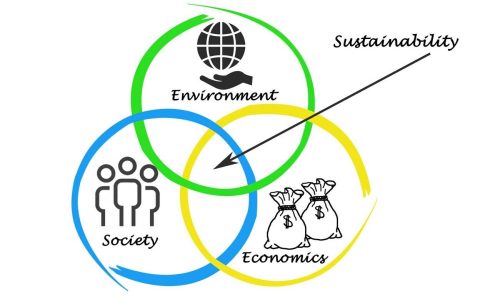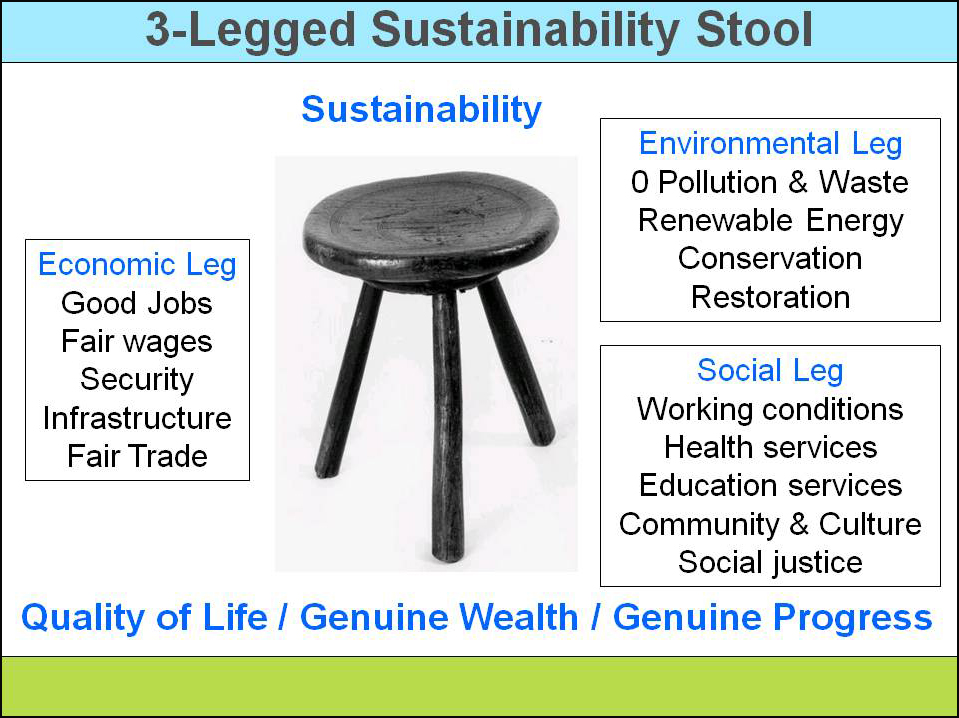Sustainable Agriculture goes way beyond mere focus on productivity. It encompasses a tripod approach; Economic viability, Accommodation of biodiversity or Environmental soundness, and Social responsibility. Simply put, it means producing abundant food, reducing or eliminating negative environmental impact, while being profitable and supporting a vibrant community around it. The ‘Sustainable Agriculture Trinity’ work together to achieve a common goal, i.e. provide for the present generation, without compromising the ability of future generations to meet their needs.

At any point where any of these three are missing, the agricultural system ceases to be sustainable. This is not in any way to imply that a single farming practice can or will have to achieve the trinity simultaneously before it can be considered “sustainable”. However, a sustainable system will integrate them all to a large extent.
From the ‘The Sustainable Agriculture Trinity’, we would extract the 4 reason why we should farm sustainably. Let’s start, shall we?
- A Solution to World Hunger and Contribution to Global Food Security: Sustainable Agricultural seeks to satisfy human food, feed, and fiber needs, and also contribute to bio-fuel needs. In satisfying the human, food, feed and fiber goal, farming systems and practices need to be managed in such a way that it increases productivity and ensures food quality and safety. This increase in productivity in turn, has a way of making farm outputs available, affordable and increase farmer’s profit.
- Economic Viability of the Agriculture Industry: Sustainable Agriculture also aims at ensuring that the agricultural industry is highly efficient, productive and profitable. It enhances economic viability of the agricultural industry by promoting profitability of farm businesses through diversification of farm enterprises, use of direct marketing strategies, value addition to farm produce and forming a cooperative with other farmers. Farm household viability, Economic security for farm labor and Economic security for the entire community are other methods of sustaining the economic viability of agriculture.

- Environmental Soundness and Accommodation of Biodiversity: Sustainable Agriculture also seeks to enhance environmental quality and the natural resource base. Enhancing environmental quality and quality of resource base will involve ensuring good soil, air and water quality by reducing the use of synthetic fertilizers and embracing on-farm nutrient recycling. Also, a healthy soil and biodiversity can be achieved by creating a thriving habitat for beneficial organism, and great choice of appropriate plant cultivars. It involves having a soil testing laboratory and amendment strategy is important but so is providing a buffer area between fields and water bodies to prevent nutrients and sediment movement into water bodies. It also involves the use of integrated pest/parasite management to manage animal health and welfare, using synthetic pesticides as a last resort.
- Social Responsibility: Sustainable Agriculture is also very concerned with enhancing the quality of life for farmers, farm families/workers, the farm community and the entire society as a whole. It seeks the protection of their health and welfare, by providing access to quality health care services and retirement benefits. The entire society will benefit from sustainability of agriculture through access to quality local food, maintenance of attractive landscapes and sustained provision of ecological services.
After considering these reasons, I believe a lot of us are already interested in practicing or investing in Sustainable Agriculture.
Are you a farmer looking to transition your farming system to a sustainable one, or an Agricultural Enthusiasts looking to invest in Sustainable Agriculture or get more in-depth knowledge about Sustainable Agriculture?
Sign up to our mailing list below.